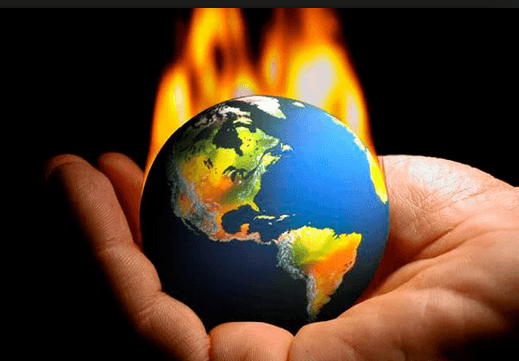Climate Activists call for faster investment towards farming
 Climate Change activists and experts at the United Nations Climate Change Conference (COP23) in Bonn, Germany have said investing faster in agricultural climate action would help unlock greater potentials to curb emissions and protect people against climate change.
Climate Change activists and experts at the United Nations Climate Change Conference (COP23) in Bonn, Germany have said investing faster in agricultural climate action would help unlock greater potentials to curb emissions and protect people against climate change.
They said supporting the sustainable livelihoods of small-scale farmers would also boost effort at protecting people against climate change.
Mr Christian Schmidt, Germany’s Federal Minister of Food and Agriculture, said during the opening of a session on: “Agriculture is a key factor for the sustainability of rural areas, the responsibility for food security and its potential to offer climate change solutions is enormous,”
A statement issued and copied to the GNA by the Media COP23 in Bonn, Germany noted that the call to direct far more resources to the agriculture sector as a key strategy to meet the goals of the Paris Climate Change Agreement and the inextricably linked to 2030 Agenda for Sustainable Development was made during Agriculture Action Day under the Marrakesh Partnership for Global Climate Action at COP22.
René Castro, Assistant-Director General of the UN Food and Agriculture Organisation (FAO) said “Countries now have the opportunity to transform their agricultural sectors to achieve food security for all through sustainable agriculture and strategies that boost resource-use efficiency, conserve and restore biodiversity and natural resources, and combat the impacts of climate change”.
The Central goal of the Paris Agreement is to keep the average global temperature rise well below 2 degrees C and as close as possible to 1.5 degrees. About one degree of that rise has already happened, underlining the urgency to progress further and faster to cut the greenhouse gases that cause global warming.
For the livestock sector, for example FAO had estimated that emissions could be readily reduced by about 30 percent with the adoption of best practices.
Extreme climate impacts also disproportionately affect small-scale farmers, pastoralists and fishing and forest communities who still provide the bulk of the planet’s food.
Supporting these communities with innovative solutions both to reduce their emissions and protect their communities also meets many of the objectives of literally every one of the 17 Sustainable Development Goals.
The Climate and Clean Air Coalition (CCAC), an organizer of the Agriculture Action day, announced they would work in the next few years to create the conditions for greater agricultural climate action.
They aim to help give countries the confidence to set realistic and yet ambitious targets through the next revision of their national climate plans – Nationally Determined Contributions.
“Agriculture is a large source of powerful greenhouse gases; like methane and other short-lived climate pollutants, but has great potential to store carbon and reduce greenhouse gases in our lifetime, that’s why we support and advocate countries to improve their livestock emissions inventories,” said Helena Molin Valdes, Head of the CCAC Secretariat.
A number of other agriculture-based solutions for addressing climate change were also presented at the event.
Discussions involved participants from governments, civil society, the private sector, small scale and young farmers centered on livestock, traditional agriculture systems, water, soil, food loss and waste, and integrated landscape management.
The participants also recommended a scale up of public and private climate finance flows to agriculture, and use them in a catalytic manner since climate finance flows continue to favour mitigation over adaptation, and focus overwhelmingly on energy systems and infrastructure.
They said there was the need to incentivise public-private partnerships through strong dialogue and collaboration between the public and private sectors to ensure alignment between public policy and private sector investment decisions in agriculture and throughout the entire food system.
They said agricultural producers needed capacity building to address barriers and to implement climate action as well as to understand the climate risks and vulnerabilities they face, and respond accordingly.
COP23, being hosted by the Republic of Fiji as the chair of the event, and being supported by the German Government, opened on Monday Nov 7 and it would close on Friday November 17.
It is featuring various plenary meetings and meetings of groups of the Convention and Protocol bodies and many more events around the topics of the COP all across Bonn and its surroundings.
Delegates around the globe are hoping to ensure greater momentum for the Paris Agreement and to raise the level of ambition needed to address global warming at the two week event.
Source: GNA
